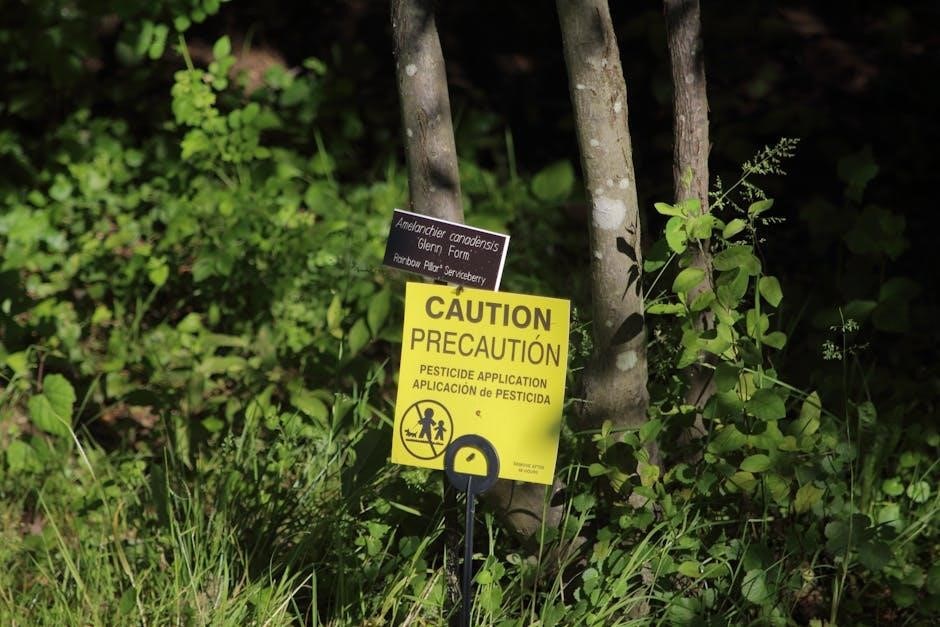Rental Application Form Nova Scotia: A Comprehensive Guide
Navigating the Nova Scotia rental market requires understanding the rental application process. This guide offers a comprehensive overview, covering essential elements, legal considerations, and resources for both landlords and tenants in Nova Scotia, ensuring a smooth and informed experience.
Rental applications in Nova Scotia serve as the initial step in securing a tenancy. These forms, used by landlords, collect crucial information from prospective tenants to assess their suitability. This process helps landlords evaluate rental history, verify income and employment, and gain insight into an applicant’s creditworthiness. Understanding the purpose and content of these applications is essential for both landlords and tenants in Nova Scotia. Landlords must adhere to provincial laws, like the Residential Tenancies Act and the Human Rights Act, ensuring fair and non-discriminatory practices. For tenants, completing the application accurately and honestly is vital for a successful rental process. Resources and templates are available online to aid in this process, ensuring compliance and clarity.
Legal Framework Governing Rental Applications
Rental applications in Nova Scotia are governed by the Residential Tenancies Act and the Human Rights Act. Landlords must adhere to these laws, especially concerning permissible questions and avoiding discrimination during the application process.
Residential Tenancies Act and its Implications
The Residential Tenancies Act in Nova Scotia sets the foundation for landlord-tenant relationships, including rental applications. This act dictates the legal parameters within which landlords must operate when screening potential tenants. It outlines what information can be collected, how it can be used, and the overall responsibilities of both parties during the application process.
Specifically, the Act addresses issues such as application fees (which are generally prohibited), the use of standard lease agreements (like Form P), and the processes for dispute resolution. Landlords must be aware of these stipulations to ensure compliance and avoid legal repercussions. This Act is paramount for fair and lawful renting practices.
Human Rights Act Considerations for Landlords
The Nova Scotia Human Rights Act plays a crucial role in regulating the types of questions landlords can ask on a rental application. Landlords must avoid any inquiries that could be construed as discriminatory based on protected grounds such as race, ethnicity, religion, gender, sexual orientation, age, marital status, family status, disability, or source of income.
Questions related to these areas are generally prohibited, as they can lead to unfair or biased decisions. Landlords should focus on objective criteria related to a tenant’s ability to pay rent and maintain the property. Compliance with the Human Rights Act ensures fairness and equal opportunity in housing.

Essential Elements of a Nova Scotia Rental Application Form
A comprehensive Nova Scotia rental application typically includes applicant details, rental history, employment verification, and credit check authorization. These elements help landlords assess a prospective tenant’s suitability while complying with relevant legislation.
Applicant Information: Name, Contact Details
The initial section of any Nova Scotia rental application form requires the applicant to provide their full legal name. This ensures accurate identification throughout the application process. Furthermore, applicants must supply current contact details, including a reliable phone number and email address, allowing landlords to easily reach them regarding their application status or to schedule viewings. Providing a complete physical address, including street number, city, and postal code, is also essential for verification purposes and for future communication. Accuracy in this section is paramount, as any discrepancies could lead to delays or even rejection of the application. Landlords rely on this information to establish contact and confirm the applicant’s identity.
Rental History and References
A critical component of the Nova Scotia rental application is detailing the applicant’s rental history. This includes providing information on previous landlords, addresses, and dates of tenancy for the past several years. Landlords use this information to assess the applicant’s reliability as a tenant. Applicants are also typically required to provide contact information for previous landlords, serving as professional references. These references allow landlords to verify the applicant’s payment history, adherence to lease terms, and overall conduct as a tenant. Providing accurate and complete rental history, along with reliable references, significantly increases the applicant’s chances of securing the rental property. A positive rental history demonstrates responsibility and trustworthiness.
Employment and Income Verification
Securing a rental property in Nova Scotia often hinges on demonstrating financial stability, which is achieved through employment and income verification. Rental applications typically require detailed employment history, including current employer, job title, and length of employment. Landlords also request proof of income, such as pay stubs, employment letters, or tax returns, to assess the applicant’s ability to consistently pay rent. Self-employed individuals may need to provide business licenses, financial statements, or other relevant documentation to verify their income. A stable employment history and verifiable income provide assurance to landlords that the applicant can meet their financial obligations under the lease agreement. Accurate and complete income documentation strengthens the rental application.
Credit Check Authorization
As part of the rental application process in Nova Scotia, landlords often seek permission to conduct a credit check on potential tenants. This requires explicit “Credit Check Authorization” from the applicant, typically included within the application form. This authorization grants the landlord the right to access the applicant’s credit report from credit bureaus like Equifax or TransUnion. The credit report provides insights into the applicant’s credit history, including payment behavior, outstanding debts, and credit score. Landlords use this information to assess the applicant’s financial responsibility and risk. Applicants should carefully review the authorization form before signing, understanding the implications of allowing a credit check. A good credit history enhances the chances of rental application approval.
Standard Form of Lease (Form P)
Form P, the Standard Form of Lease in Nova Scotia, outlines the standard conditions applicable to residential leases. Landlords may use Form P or another lease, ensuring compliance with the Residential Tenancies Act.
Using Form P as a Lease Agreement
Landlords in Nova Scotia have the option to use Form P, the Standard Form of Lease, as their primary lease agreement. This form provides a comprehensive template that covers essential terms and conditions required under the Residential Tenancies Act. While its use is not mandatory, Form P ensures compliance with legal requirements, offering a standardized and legally sound framework for the landlord-tenant relationship.
It outlines key aspects such as rent amount, payment schedule, lease duration, and responsibilities regarding property maintenance. Using Form P can streamline the leasing process, reducing potential disputes by clearly defining the rights and obligations of both parties involved in the rental agreement.

Landlord’s Rights and Responsibilities Regarding Applications
Landlords in Nova Scotia have specific rights and responsibilities when processing rental applications. These include permissible screening practices, adhering to human rights legislation, and avoiding discriminatory questions to ensure a fair and equitable application process.
Permissible Questions and Screening Practices
Nova Scotia landlords are entitled to ask questions relevant to a tenant’s ability to fulfill the lease agreement. This includes inquiries about rental history, employment, and income verification, ensuring the applicant can meet financial obligations. Credit checks are permissible with explicit authorization. However, questions infringing upon the Human Rights Act, such as those concerning race, religion, or family status, are strictly prohibited. Landlords must apply screening criteria uniformly to all applicants, avoiding any perception of bias. Documenting the screening process is advisable for transparency. Adhering to these guidelines ensures legal compliance and promotes fair housing practices throughout Nova Scotia’s rental market.
Avoiding Discrimination in the Application Process
Landlords in Nova Scotia must adhere strictly to the Human Rights Act, ensuring a fair and unbiased rental application process. Discrimination based on protected characteristics such as race, religion, ethnicity, family status, gender, sexual orientation, or disability is illegal. Application forms and screening practices should avoid questions related to these attributes. Consistent application of criteria, like income verification and rental history checks, is crucial. Documenting all screening decisions provides evidence of impartiality. If rejecting an applicant, clearly articulate objective, non-discriminatory reasons. Training staff on fair housing practices and regularly reviewing application procedures mitigate the risk of inadvertent discrimination, fostering inclusivity within the rental market.

Tenant’s Rights and Responsibilities
Tenants in Nova Scotia have rights and responsibilities during the rental application process. These include providing accurate information, understanding application fees (if any), and knowing their rights under the Residential Tenancies Act.
Providing Accurate Information
Tenants are obligated to provide truthful and accurate information on their rental applications. This includes details about their rental history, employment, income, and any other information requested by the landlord. Misrepresenting information can lead to the application being rejected or, if discovered later, can be grounds for eviction.
Honesty and transparency build trust between the tenant and landlord, fostering a positive landlord-tenant relationship. Providing accurate details allows landlords to make informed decisions, ensuring fairness and compliance with the Residential Tenancies Act. Tenants should carefully review all information before submitting the application to avoid discrepancies or misunderstandings.
Understanding Application Fees (if any)
In Nova Scotia, it’s crucial for prospective tenants to understand the regulations surrounding application fees. Landlords in Nova Scotia are generally prohibited from charging application fees. This means that landlords cannot demand a fee simply for processing or reviewing a rental application.
However, landlords may require a security deposit, but this can only be collected after the application is approved and a lease agreement is in place. Tenants should be wary of any request for upfront fees before signing a lease, as this may be a violation of the Residential Tenancies Act. Always clarify any financial obligations before proceeding.

Where to Find Rental Application Forms in Nova Scotia
Finding rental application forms in Nova Scotia is straightforward. They are available through online resources, property management companies, and landlord associations. Ensure the form complies with Nova Scotia’s Residential Tenancies Act.
Online Resources and Downloadable Templates
Numerous online resources offer downloadable rental application templates specific to Nova Scotia. Websites of property management companies, landlord associations like RHPNS, and legal document providers often provide these templates. Government websites may also offer related forms or links. When downloading, ensure the template complies with the Residential Tenancies Act and the Human Rights Act of Nova Scotia. Look for templates in both PDF and editable formats (like Microsoft Word). Review the template carefully to ensure it includes all necessary fields and avoids discriminatory questions. Some websites may require registration or a fee to access these templates, while others offer them freely. Always verify the source’s credibility.
Digital Tools for Managing Rental Applications
Digital tools streamline the rental application process. PDF editors facilitate completing and signing forms electronically. Cloud storage enables secure document management, while online platforms aid in tenant screening and communication, enhancing efficiency and organization.
PDF Editors for Completing and Signing Forms
PDF editors are invaluable tools for managing rental applications in Nova Scotia. These applications allow users to directly input information into digital forms, eliminating the need for printing and scanning. Features include text insertion, signature fields, and annotation tools. Securely sign documents using electronic signatures, ensuring authenticity and compliance.
PDF editors streamline workflows by enabling easy sharing and storage of completed applications. Many offer cloud integration, allowing access from any device. This digital approach saves time, reduces paper waste, and improves organization for both landlords and prospective tenants in Nova Scotia’s rental market.
